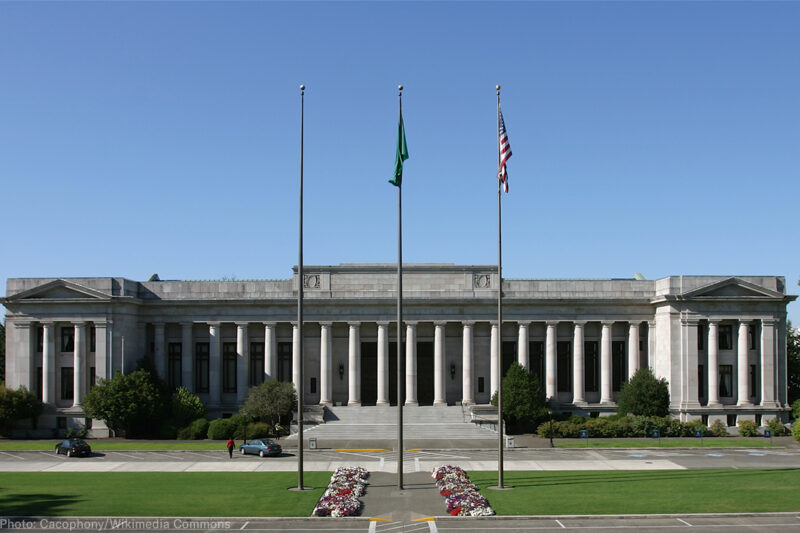
On Oct. 11, the Washington State Supreme Court unanimously struck down the death penalty as unconstitutional, the “death penalty is invalid because it is imposed in an arbitrary and racially biased matter” and "it fails to serve any legitimate penological goal.” The death penalty is a punishment that is as flawed as it is final, and as the Washington high court acknowledges, one plagued by racial bias and arbitrariness.
The ruling came in response to an appeal in Allen Gregory’s case. Gregory argued that the entire death penalty scheme in Washington was unconstitutionally discriminatory, relying in large part on a rigorous and sophisticated by researchers at the University of Washington. The study ultimately showed that Washington juries were more than four times as likely to sentence a Black defendant to death as a non-Black defendant.
Gregory’s case led a broad group of advocates, researchers, and criminal justice attorneys to file amicus briefs arguing Washington’s death penalty scheme was a demonstrated failure, infected by racial bias and arbitrariness. Seventy-five retired or former judges in Washington state joined the asking the Washington court to strike the death penalty. They did so because they had the grim benefit of front row seats to its unjust application.
Thursday's decision is a step toward racial justice, but nationwide the racism inherent in the procession and decisions in capital cases still too often unaddressed. In fact, the Washington Supreme Court joins just a small number of state courts, including Massachusetts and Connecticut, that have struck down the death penalty after recognizing the intolerable taint of racial discrimination.
Racial bias is the intractable legacy of the death penalty’s history in America. Capital punishment can never free itself of the yoke of its roots in . As the viscerally demonstrates, many of the same southern and midwestern counties that tolerated and even encouraged lynchings of Black men were enthusiastic proponents of capital punishment.
But the legacy of racial violence extends beyond just any county or state border: Racial bias permeates capital punishment at every stage from the decision to charge the death penalty to execution. One acute pinch point of that discrimination is in jury selection.
Prosecutors across the country routinely discriminate against potential Black jurors in capital cases by striking them from serving. In 2016, the U.S. Supreme Court ruled for after handwritten notes from the prosecution surfaced showing its relentless efforts to strike Black jurors from his capital case. This included the prosecutor’s notes designating each with a “B” and noting the lone juror they would accept if they “had to pick a Black juror.”
This kind of discrimination in juror selection is far from limited to Foster’s case. In studies ranging from up to and back down to , we see clear systematic discrimination against qualified Black jurors in capital cases. In North Carolina, prosecutors were trained statewide, with a handy top-10-style cheat sheet, in how to give pre-textual explanations to avoid being caught for racial discrimination.
Decisions about who should live and who should die are too often driven by the race of the defendant or race of the victim, as studies for have repeatedly shown. But, as the Washington Supreme Court found, the death penalty’s problems go far beyond racial bias. It is a flawed and ineffective tool of justice, one has become itself a tool of injustice. Capital punishment does not deter crime, and it fails to protect the innocent from wrongful convictions.
These concerns have caused the public to turn from the death penalty, with support for capital punishment at a . Likewise, death penalty jury verdicts and executions . Today, Washington became the 20th state to officially reject capital punishment. Three other states have governor moratoriums, and another have not had an execution in the last decade.
The problems with the death penalty cannot be fixed. It is time for other courts to follow Washington’s lead and strike the unconstitutional, unjust, and racially discriminatory punishment from the books once and for all.
Every day across the nation, the ACLU is called on to defend all the freedoms guaranteed in the Constitution and the Bill of Rights. There's never been a more important time to support the ACLU and our effective work to protect civil liberties. If you like what you just read, help us continue to speak freely by .


